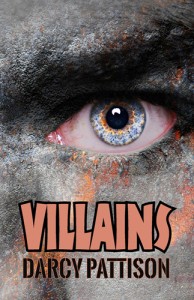Creating Sympathetic Characters, Part I
I am working on characters in my VNovel. Apparently, I generate initial sympathy for my protag, but at some point, the reader loses the connection to him. So, there’s work to do. Here are things I’m looking at.
9 Character qualities that generate support
Help Your Readers Identify with Your Characters. We tend to identify with characters who are like us in some way. They play certain roles in a family, do certain types of work, are concerned about things we are concerned about. In my story, G is a big brother who is forced to take care of his little sisters, and does it well, almost heroically well. He’s making sacrifices to do this, which helps also. The problem is that G must leave his sisters behind when he goes on a quest. So, I’ve got to work hard after that to keep him sympathetic.

- Physical Descriptions. We like beautiful people. Graceful. Striking. Attractive. The problem here is not to over do it and not to rely on it.
- Altruism. Orson Scott Card, in his classic Characters and Viewpoint, describes three levels of altruism, or the unselfish concern for the welfare of others. (BTW, did you know that Card has a new book out in the Ender series, Ender in Exile? If you’re an Ender fan, you gotta read it!)
- Victim: A character who is the victim of suffering (jeopardy, pain, evil) will evoke sympathy, but also pity for his/her weakness and a touch of contempt for allowing him/herself to become a victim.
- Savior: This character is admired because they take action against suffering of someone else; however, it could be conceived as a fool rushing into danger. Three things helps here: the savior is reluctant to intrude; the victim asks for help, indirectly or directly; and, the situation is urgent.
- Sacrifice: A character who is willing to give up something important (riches, power, position, freedom, life) for a moral cause will almost always get sympathy.
- Active v. Passive. How active is your character? Their plans, needs, dreams and hopes (DrEeds and PlOpes) are important in developing sympathy. If your character just reacts to events, they will be considered weak. Instead, they should be pursuing some plan, need, dream or hope and that action is interrupted by the story’s events.
- Plan. Immediate plan of action, plus long term plans.
- Needs. Ongoing needs for food, shelter, money, sleep, information, love, conversation, Reese Peanut Butter cups, 1/2 inch steaks, etc. Weave these into the plot.
- Dreams. Let the character daydream about the outcome of plans.
- Hopes. What is the ultimate hope that draws the character onward and won’t let him/her stop?
- Morality. Courage, sense of fair play, noble causes–all the character issues relating to moral issues are extremely important.
- Courage: Will a character take physical, mental, emotional and financial risks for what is right?
- Fair Play: Don’t we love it when football players refuse to gloat after a win? Are they coached on how to respond to the press, or do they really believe that the credit goes to the whole team, that so-and-so was crucial to the success. They don’t gloat, cheat, do anything sneaky or underhanded. We love our football players brave and with a strong sense of fair play. No cowards or cheats allowed.
- Noble causes: Characters who recognize a noble cause – the underlying morality of an event – will usually be considered sympathetic and worthy of our attention.
- Drafted or a Volunteer. Here the question is “What’s in it for me?” If the character volunteers to do a nasty task because it’s the right thing to do, we will praise him. If, however, the character is asked to do something that will give him a worldwide reputation, be careful. For that kind of task, one that will give him great rewards in return, he must be drafted, or risk our disdain.
- Promise Keeper. This is a crucial one: once s/he gives her/his word, will s/he keep it? Sympathetic characters would rather die than go back on a promise. Literally die.
- Intelligence. Well, a little bit goes a long way here. Geeks, geniuses who speak in big words, and know-it-alls can be very annoying. Instead, pattern your character after Indiana Jones who is just smart enough to figure his way out of trouble, but not so smart to stay out of trouble to begin with.
- Flaws. Also crucial is the flaws that you give to your character. In From The Mixed up Files of Mrs. Basil E. Frankweiler, the brother, Jamie, cheats at cards. Yes, in a kid’s book, we love this sympathetic secondary character and part of the reason we love him is that he cheats at cards. Strange, but it’s true: we like him.
- Loved by someone else. Ever wonder why so many stories have sidekicks? If someone is loved by someone else, it establishes the character as someone worthy of love. Give them a pet. Or add a weaker character who admires them.
 |
|
Tomorrow, Part II will talk about using these character traits in creative ways.
Villains. You may also be interested in this 3 part series on Villains:
Great post! Saving for reference. Also very curious about this new Ender book, tho I’ve only read the first 3 and not ventured further. I hadn’t heard much about the rest of the series.
Be careful though, a lot of these traits can be deeply unsympathetic as well. Like being loved – having someone hero worship them sends out big Mary Sue warning signs and makes the worshipper and the worshippee extremely irritating.
A lot of this stuff sends out major “I am pure, selfless, epitome-of-goodness AWESOME and you should all BOOOOWWW to my awesomeness!!!!!!!” signals.
Ones I definitely disagree with are Loved, Morality, What’s In It For Me and Promise Keeper. They all tend to lead towards an annoying goody two shoes, however many flaws you pile on them.
I realise I’m ranting a little, sorry :-) Long story short, if a character was all these things, I would hate them. Even just a few of them would make me want to punch them in the head. I like my characters HUMAN, not pure goodness and light angels. And no, a token flaw or two does NOT help. An angel who plays cards is still an angel :-)
Absolutely right. You must pick and choose to fit your story and beware of TOO good.
Dracy